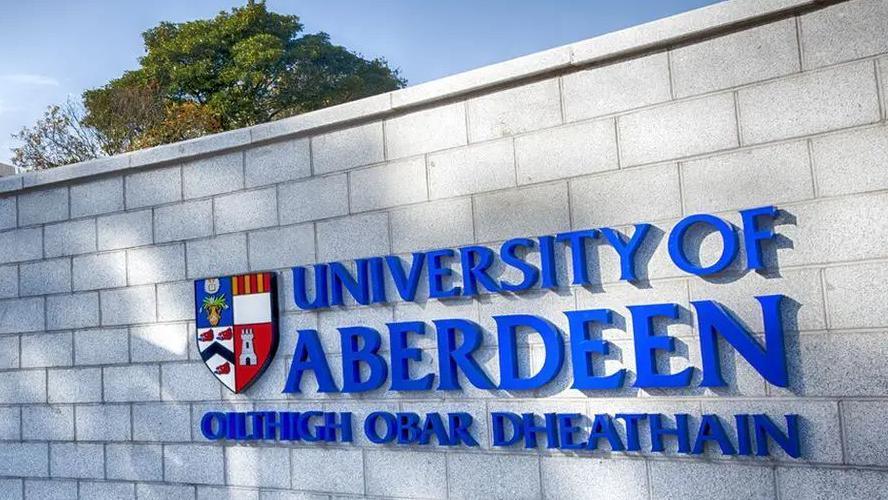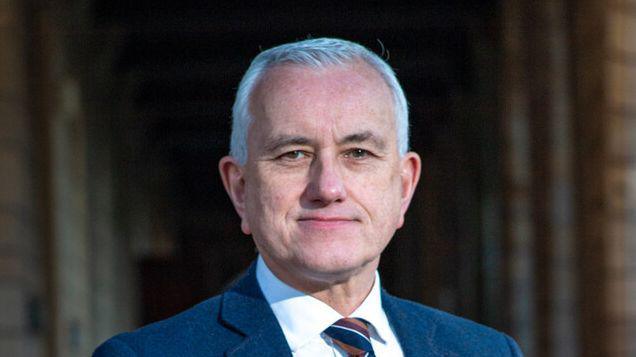'Power struggles' and 'toxic culture' at Aberdeen university

A review was carried at the University of Aberdeen
- Published
Reports of "power struggles" between decision-makers at the University of Aberdeen and a "toxic culture" at some meetings have been uncovered in a review of the institution.
The review - carried out by external consultants, and seen by BBC Scotland News - said current structures at the institution were "overly complex, slow and lacking clarity".
It said there were some strengths, but also highlighted "significant challenges" across all parts of its governance.
The University of Aberdeen said it would take forward the recommendations made in the report.
It follows concerns about sector-wide financial sustainability, and internal structural changes at the 530-year-old establishment.
The review by SUMS Consulting found that there could be blurred boundaries between decision-making bodies, and inconsistent practices across committees.
This was said to have led to a sense of frustration, disempowerment, and inefficient use of staff time.
"There are some effective governance practices at Aberdeen, but these are heavily outweighed by these challenges," the review said.

The University of Aberdeen was founded in 1495
The review said: "Reports of 'power struggles' between senate and senior management have emerged, with decisions believed to be in the university's best interests allegedly being obstructed by one party or the other."
Aberdeen university's senate, external is responsible for all academic matters relating to teaching and research.
The report added: "Within senate meetings, some of the consultees reported cases of 'intimidating behaviour', 'a toxic culture' and 'overstretched remit' which has led some members to disengage from senate entirely, as this culture and behaviours have become normalised."
It makes a series of recommendations, including simplifying governance structures, clarifying roles, and improving transparency.
"The review is widely seen as an opportunity to re-set and redefine the university's governance framework," the report said.
"A shift away from a 'blame culture' towards a more equitable and collaborative approach is critical to restoring confidence and enabling timely, well-informed decision-making".
How did the University of Aberdeen respond?
The University of Aberdeen said the higher education sector in Scotland was facing "unprecedented" challenges.
Edinburgh university has announced £140m of cuts to tackle financial difficulties, while the Scottish government bailed out Dundee university with £40m of emergency funding.
A spokesperson for Aberdeen university said the report was commissioned to help find ways to improve the "efficiency of our governance arrangements" and make it "better able to respond to the challenges facing the sector".
They said the report's findings had been shared across the university and "reflective discussions" were taking place.
"The report provides an opportunity to re-set and redefine the university's governance towards a more streamlined, transparent, equitable and collaborative approach based on mutual trust and accountability," they added.
The statement continued: "We look forward to taking the recommendations forward with our community as part of our new Adapting for Continued Success programme."
The Aberdeen University Students' Association (Ausa) said that at a time when pressures on the higher education sector were increasing, it was "more important than ever" that universities demonstrate "strong and transparent" governance.

Prof Pete Edwards is the new principal of the University of Aberdeen
The report's findings emerged as the university's new principal, Prof Peter Edwards, took up his role.
He replaced Prof George Boyne, who has held the position since 2018.
In a message to staff, Prof Edwards said he wanted to create "new levels of transparency around the work of the leadership of the university and will be looking to raise the profile of our senior management team".
He added: "It's a huge privilege to lead such a talented pool of staff and students.
"You'll find me open to your ideas on how we can work together to take our university into its next stage of evolution."

Universities have complex loyalties, and it's nothing new that there are tensions between the court, which looks after the finances, and the senate, where the emphasis is more on academic concerns.
Where budgets are squeezed by court, expect the senate to warn of the impact on academic integrity.
But the SUMS report on Aberdeen University shines a light on a lot more than the usual tensions.
The dry bit of it is about complex and sometimes dysfunctional committee structures, making for inefficiencies and poor accountability.
What has clearly been making them more dysfunctional are "cultural and behavioural" problems. Without any names being offered, this is about power and clashing personalities.
It is not a report that the senior management team want to suppress. They commissioned it, and must have expected it to be harsh in its criticisms.
There's a new principal in place this week, his starting date brought forward to coincide with this report's circulation.
Although he's been an insider, Prof Pete Edwards can present himself as a new broom, addressing the challenges the institution faces, implicitly blaming them on predecessors, setting Aberdeen up against benchmarks of other institutions (with Glasgow University playing an exemplary role), while he's been emphasising to staff that he is one of them.
This is about driving change, and removing obstacles to that change.
Senior bosses in organisations often call in outside consultants to tell them what they already know, but they want the report to provide independent, external justification for change, and some of the momentum necessary to make it happen.

In 2023, the university faced criticism over redundancy plans and for its decision to no longer offer single honours degrees in modern languages.
Its annual report that year said there was "material uncertainty that may cast significant doubt over the ability to continue as a going concern".
Further cuts by the University of Aberdeen were announced earlier this year, despite progress being made on improving its financial position.
Prof Edwards will now oversee those cuts as the university looks to plug a £5.5m funding gap.
Earlier this year the university reopened and later extended its voluntary severance scheme.
Related topics
- Published13 October

- Published8 July

- Published13 June
